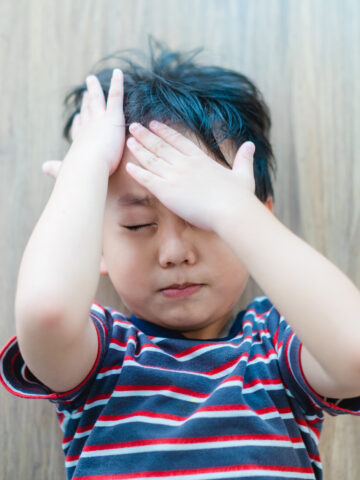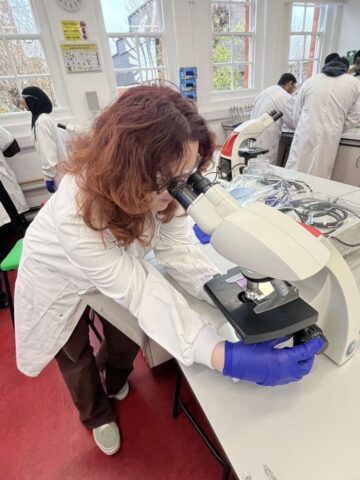In Recognition of Epilepsy Awareness Month, we spoke with a teenager with the condition to learn more about life with epilepsy, and what advice he would offer a newly diagnosed patient.
Stephen Moore swallows eight pills daily, avoids heights and contact sports, and pays close attention to his body’s cues. This routine, combined with the care of CHOC specialists, has helped keep the 15-year-old seizure-free since his epilepsy diagnosis three years ago.
Stephen is one of 2.5 million Americans with epilepsy, a neurological condition wherein abnormal electrical activity in the brain can cause seizures, convulsions or sensory disturbances.
He was diagnosed at age 12 after experiencing a seizure one Sunday afternoon while watching a football game on television with his parents.
“I got up, took a step forward and collapsed on the ground,” he says. “My parents wanted to know if I was alright and what was going on. I could hear them, but I couldn’t respond. It was like the muscles in my jaw just weren’t there and I couldn’t move them.”
An ultimate epilepsy diagnosis and subsequent care plan was at first confusing and distressing for Stephen.
“I got the feeling that all kids who are newly diagnosed get,” he says. “Your heart sinks. You hear, ‘You can’t do this, you can’t do that,’ and it’s like, ‘What am I supposed to do?’”
For Stephen, the “can’ts” include activities that involve heights, like rock climbing or a pool’s high-dive. He can’t swim alone and must always wear a helmet while bicycling – good advice for everyone – and he must also pass on contact sports, like football.
For the then 12-year-old Stephen, these restrictions at first seemed insurmountable.
“It was very depressing,” he said. “But I’ve gotten through it. It took some time, about two months after I was diagnosed.”
Now, three years later, Stephen has mostly made peace with his condition, which could become life-long. His advice to newly diagnosed patients would be to listen to their bodies’ needs and talk to people about the condition. These measures help him maintain both physical and emotional health.
“At first, I was afraid to talk to anyone,” he said. “I don’ t know if I didn’t want people to know or I just didn’t want to think about it myself, but I learned that you definitely need to talk about it, otherwise you’ll bottle that up.”
A freshman in high school, Stephen is enrolled in honors and AP courses and particularly enjoys Spanish class. His teachers and a few friends know about his condition, but he doesn’t let epilepsy and the threat of another seizure rule his life.
“I don’t worry about that,” he says. “I know I have it and seizures can happen, but I don’t think about it because it does me no favors.”






